Make a positive impact on conservation efforts! Gain critical skills in planning and managing conservation projects. The Open Standards for the Practice of Conservation (or Conservation Standards) provide a set of best practices to select strategies, test assumptions, adapt and improve conservation actions, share learning, and be more effective in an increasingly complex world.
The University of Wisconsin-Madison Nelson Institute for Environmental Studies, in collaboration with conservation specialists from Foundations of Success (FOS), the Conservation Measures Partnership (CMP), and the Conservation Coaches Network (CCNet), is now offering steps three (implement) and four (adapt) of the Conservation Standards.
How well-regarded is this course in the conservation community?
The Conservation Measures Partnership (CMP), a partnership of leading conservation-oriented NGOs, government agencies, and funders (including, for example, WWF, TNC, USAID and the Jane Goodall Institute), has endorsed the course and given it an “excellent” rating. These courses, designed by conservationists steeped in the Conservation Standards, have been enthusiastically received by the Conservation Standards community.
Courses Offered
Step Three: Vital Skills for Implementing and Managing Conservation Projects
In many respects, this is the most important step in the entire conservation process. In this course, you’ll learn how to develop work plans and timelines, refine budgets, and implement plans. Participants in the course will:
- Learn how to be more effective at project work planning and budgeting, using the Conservation Standards
- Discover key questions and options for adapting projects to fit within likely resources
- Gain planning and management skills needed to be successful in project fundraising
- Expand professional networks by interacting with and learning from other conservation projects and colleagues
2025 course dates: August 11–November 7.
Step Four: Vital Skills for Analyzing and Adapting Conservation Projects
This step of the Conservation Standards involves managing your data as they come in and regularly analyzing them to convert them into useful information and knowledge. In this course, you’ll learn how to prepare data for analysis, analyze results, and adapt a project or program. Participants in the course will:
- Learn how to track and analyze project data to adapt and improve conservation efforts, using the Conservation Standards
- Gain skills needed to generate meaningful charts, figures and narratives to describe and interpret project progress to inform adaptive management
- Acquire techniques to effectively communicate and share project results for discussion among key project partners and stakeholders
- Expand professional networks by interacting with and learning from other conservation projects and colleagues
2025 course dates: August 11–November 7.
Benefits
Gain skills needed to be successful in conservation, using the Conservation Standards
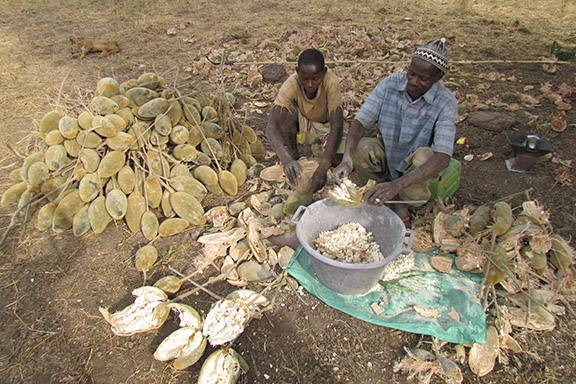
Learn how to be more effective at project planning, management, and fundraising
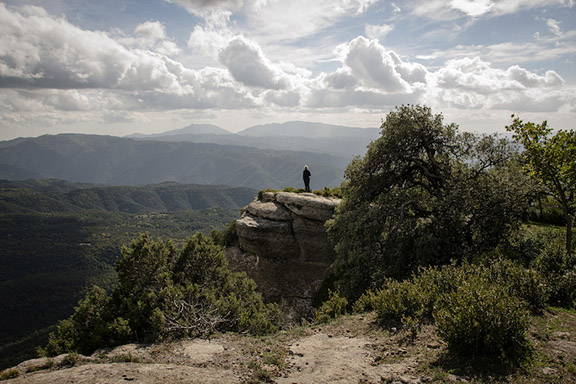
Expand professional networks by interacting with other conservation practitioners and learning from their projects
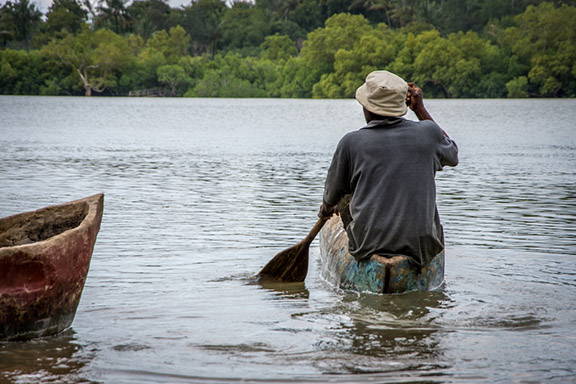
Gain a competitive advantage in applying for jobs or advancing within your organization

Three Reasons to Consider Conservation Essentials
1
Conservation Essentials is endorsed by the Conservation Measures Partnership (CMP), a partnership of more than 30 leading conservation organizations
2
The courses offer a flexible online platform to fit into busy schedules
3
The courses support learning from leaders in conservation and direct interaction with the course instructor
The Details
Suggested Prerequisites
This course assumes that students are familiar with strategic planning as covered under steps one and two of the Open Standards for the Practice of Conservation.
This course complements existing Nelson Institute conservation planning courses. The Environmental Conservation MS degree curriculum includes a semester-long conservation planning course in steps one and two of the Conservation Standards and a five-week course in steps three and five of the Conservation Standards.
Who will benefit from this course?
- Graduate students in Environmental Conservation and related fields
- Conservation practitioners wishing to increase their expertise in advanced steps of the Conservation Standards
- Conservation organizations wishing to train their employees in advanced steps of the Conservation Standards
Team, Instructors, Partners
- Content developers: Felix Cybulla, Marika Suval, and Foundations of Success (FOS)
- Developers of the course are members of the Teaching Adaptive Management (TAM) Network, a Conservation Coaches Network (CCNet) community of practice focused on developing and administering Conservation Standards-based strategic management courses.
- CCNet aims to improve conservation by empowering people to develop, implement, evaluate, adapt and share effective strategies that achieve tangible conservation results benefitting both people and nature all over the world.
- This course is supported by the Conservation Measures Partnership (CMP), a partnership of conservation-oriented NGOs, government agencies, and funders that work collectively to achieve greater conservation impact.
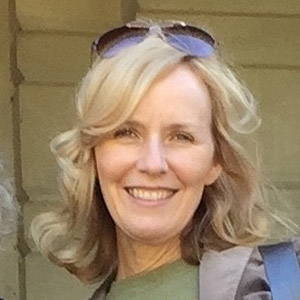
Marika Suval
Communications and Strategic Planning Consultant, Conservation Standards Coach

Ashleigh Baker
Program and Communications Officer at Foundations of Success (FOS)
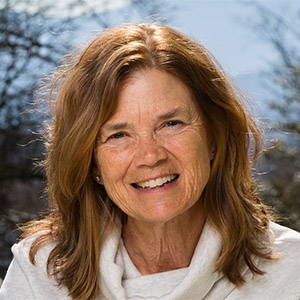
Arlyne Johnson
Senior Program Officer at Foundations of Success (FOS)

Caroline Stem
Program Director at Foundations of Success (FOS)
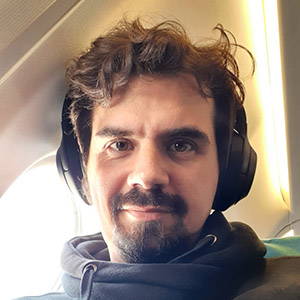
Felix Cybulla
Independent Consultant for Conservation Planning and Adaptive Management, Conservation Standards Coach
Course Cost
$1,500 USD, to be paid in full at registration. A credit card is required for registration. If paying by credit card is not possible, please email csmanager@nelson.wisc.edu for alternative payment options.
Financial Assistance
Those with a demonstrated financial need can submit an application for a financial award that would provide a partial reduction of the total cost of the course.
Frequently Asked Questions
This is an accordion element with a series of buttons that open and close related content panels.
Which specific aspects of the Conservation Standards will I learn in this course?
This course focuses on the implementation phase of the Conservation Standards (step three: implement). It covers:
- How to use the Conservation Standards to develop a work plan, timetable and budget
- How to apply for funding and make critical budget decisions
- How to set up structures for monitoring and reporting progress, including how to store and manage data
How will this course help me in my career?
You will:
- Gain skills needed to be successful in conservation, using the Conservation Standards
- Learn how to be more effective at project planning, management, and fundraising
- Expand professional networks by interacting with and learning from other conservation colleagues and their projects
- Gain a competitive advantage in applying for jobs or advancing within your organization
What pre-knowledge of the Conservation Standards do I need to bring to the course?
The course assumes pre-knowledge of steps one and two of the Conservation Standards and Miradi software. Students who need additional review are provided with resources such as the self-taught online course covering steps one and two of the Conservation Standards at ConservationTraining.org (search "Conservation Action Planning"):
How much should I anticipate to work each week on course assignments?
Students should expect to work from 8 to 13 hours per week on course assignments. This includes reviewing lectures and readings, completing assignments, conducting peer reviews of assignments, and participating in group discussions.
How will I interact with and receive feedback from the course instructor?
The course instructor will hold two weekly, live, one-hour check-in meetings using the university online collaboration platform (e.g. Blackboard Collaborate). Students may ask course-related questions regarding logistics, technical questions, and processes via an online forum.
For personal questions related to grades and attendance, students may contact the instructor directly.
How will I interact with other students in the course?
This course places a high emphasis on group interaction and discussion. For example, assignments are designed to foster peer-to-peer review and group discussion via a virtual discussion board.
How will the course be graded?
The course consists of six modules. Students are expected to achieve a minimum score of 80 percent on each module assignment and to regularly participate in module discussions to receive a certificate of course completion.
Will I receive a certificate of completion once I complete the course?
Yes, all students who complete and meet the minimum requirements of the course will receive a certificate of completion.
I do not have the funds for this course. How can I request a scholarship?
For those who have a demonstrated financial need, please submit an application to be considered for a financial award that would provide a partial reduction of the total cost of the course.
What happens if I need to cancel my registration?
The course registration fee is not refundable, but it can be applied to future course enrollment. If you need to cancel your registration, please email csmanager@nelson.wisc.edu to be placed in the next available course.
What type of internet/technology access is required for participating in the course?
Please see this Technology Guidance page for details.
Whom do I contact if I am having technical problems with the course website?
Students receive detailed guidance for technical setup and have free access to UW-Madison's Information Technology (DoIT) helpdesk. If you experience any problems, a recommended first step is to consult the DoIT Knowledge Base.
How often is the course offered and when?
We plan to offer each course (step 3 and step 4) two times per year.




